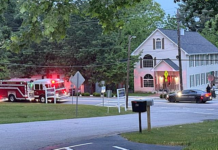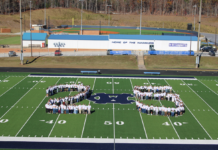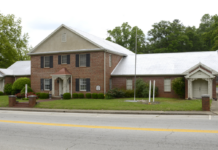
First responders and public safety officials from all over the state have spent the past week at the Habersham County Aquatic Center receiving their Peer Counseling Certification, a state-funded program to help first responders process traumatic events and gain access to mental health services.
“Habersham County Emergency Services, Sheriff’s Department and E-911 are honored to host the Georgia Peer Counseling Certification Class for the North Georgia area this week,” Habersham Emergency Services Director Chad Black said. “While Public Safety personnel are the ones who respond when others are in need, our own sometimes need help. What they see, experience and witness can put unbelievable strain and stress on anyone that is human, and now, we have ways for not only recognizing this but providing the necessary help to our personnel.”
Black has worked with public safety support groups like the Southern Outreach Support for Public Safety and S.O.S for Public Safety for nearly 2 years. He says he has “a huge affinity” for programs like peer counseling, and wanted to make sure Habersham County was a sponsor for North Georgia’s peer counseling program.
Firefighters, E-911 operators and police officers from Habersham County, Gainesville, Cartersville, Gwinnett County, Georgia Tech, Georgia State Patrol, Dillard, Union City, Morgan County, Coweta County, Forsyth County and Lumpkin County attended the training.
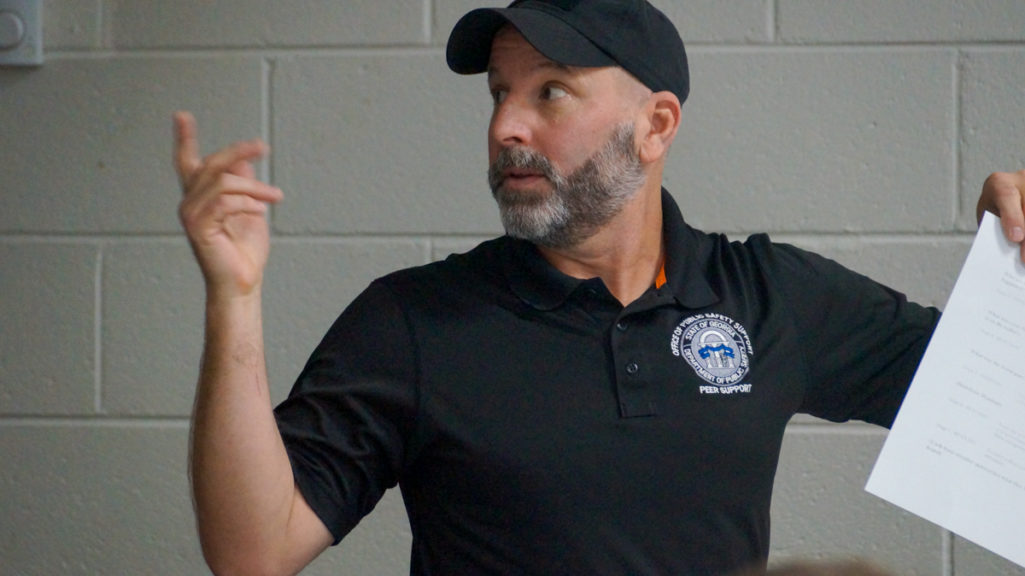
“We [first responders] are two to three times more likely to use drugs and alcohol, and we’re also two or three times more likely to commit suicide than the general population,” Fire and EMS Peer Counselor Shane Smith says. “It’s because we don’t talk. We’re the helpers, we never think we need help and we don’t want to tell [anyone] when we do.”
Smith says he became involved in the program when he learned how high suicide, drug and alcohol abuse rates are for firefighters due to repressed trauma, and he wanted to make sure that none of his fellow first responders were suffering in silence.
“If we can go out and help complete strangers we don’t even know, why can’t we help our fellow brothers and sisters?” Smith asks.
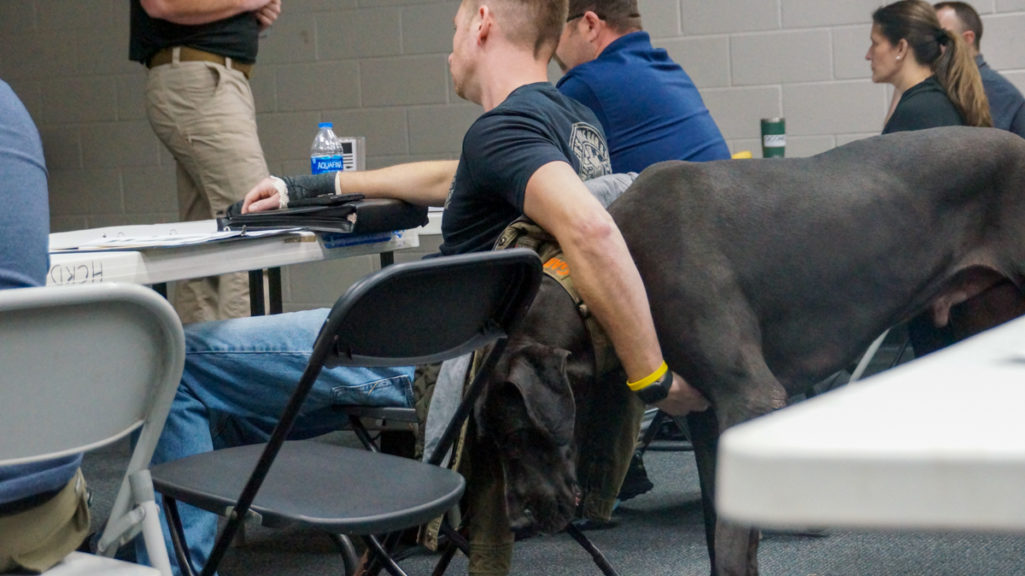
The class certifies first responders in “Peer Counseling,” which helps first responders support other first responders following critical incidents and traumatic experiences. The program also helps first responders get in touch with important state-funded public safety mental health resources, like counselors and other mental health professionals, through the Office of Public Safety Support.
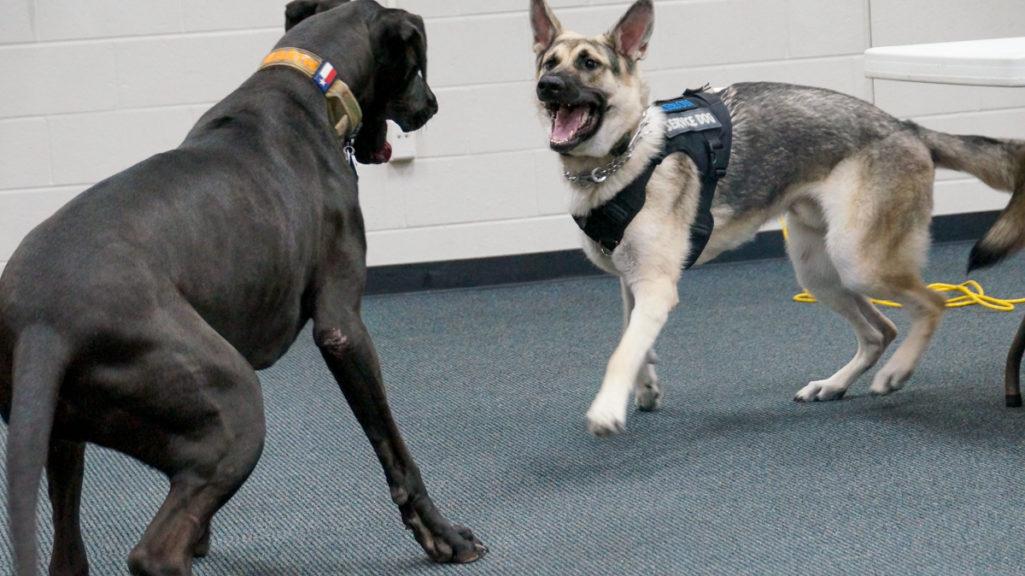
Because of the nature of some of the discussions and lessons in the class, traumatizing experiences first responders have experienced can surface during the certification course. That’s why mental health professionals, trained peer counselors and therapy dogs have been available to the public safety officials taking the class.
“We can run call after call and nothing ever bothers us, but for whatever reason, something happens, and when it does, that’s when we start spiraling,” Smith says. “We hold it together well in front of our crews, but . . . what they [show] on the outside might not be what’s going on inside.”
Smith encourages first responders to open up to one another and reach out for help when they need it. He also encourages family members of first responders to keep an eye out for signs of distress, like acting out of character, dependency on alcohol or drugs or zoning out when coming home from work. If you notice something is wrong, reach out.
If you or someone you know works in public safety and needs to talk to a peer counselor, call (404) 624-6077 to be connected with one.


